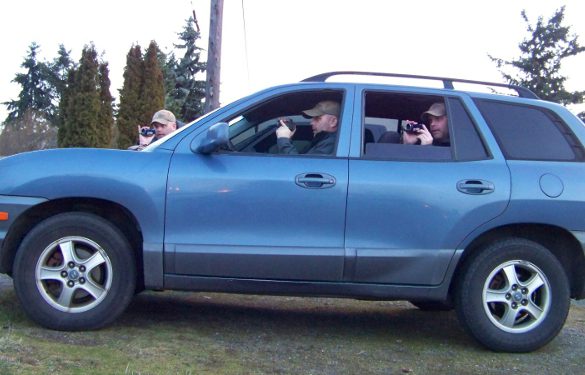Podcast: Play in new window | Download
People in general (including myself sometimes) like to throw around how many years of private investigator experience they have. This, of course, is supposed to provide some credibility to how much knowledge they have in a particular industry. Private investigations are no different when it comes to telling others (colleagues, future employers, and future clients) how many years of experience we have.
The problem with this is that investigators that have been licensed for 20 years sometimes don’t practice their craft as often as someone that has been working for 3 years. As a result, the more tenured investigators don’t come anywhere close to the investigator’s skills that have been working for 3 years.
I think a great example is a conversation that I had with a good friend and colleague during a surveillance we were working together. She was new to a company I do work for and I was to work with her, evaluate her skills and provide the manager an idea of how good the investigator was to give the manager some idea of the new investigator’s skill set.

The new investigator (new to the company) had been a licensed investigator for over 20 years, had her own business in Washington and had been working for herself intermittently in the state for around 8 years.
The investigator and I got into a conversation about surveillance and she mentioned in 20 years she had only been burned a handful of times.
My response to her was straightforward and probably sounded rude but I said this, “If you have only been burned a handful of times in 20 years, you have not worked a lot of surveillance.”
She replied stating she had worked a great deal of surveillance.
In her mind, she had worked quite a bit of surveillance cases over 20 years but the reality was that I probably worked more surveillance cases in 2 years than she had in 20 years of being licensed. I had worked full time as a surveillance investigator for 10 years and she had nowhere the time and experience that I had.
We continued to talk and I continued to evaluate her during the time we worked together. What I determined was that she was a very intelligent and competent investigator. Her surveillance skills were probably a bit rusty but I knew she would be just fine after a few cases.
It wasn’t that she wasn’t a good investigator because she was. She just didn’t have the sample size that I did. She didn’t have the amount of surveillance experience that I did despite being a private investigator (or licensed investigator) longer than I had been.
What this investigator did find is that in her first year with the company she was burned more than a handful of times which was normal. She worked some tough cases and was a huge asset to the company.
So what does this information mean to someone looking to hire a private investigator?
This means that when you are looking for a private investigator to hire it may be better to look for someone that specializes in the type of work you want to be completed. If you are looking for a background check on someone then find someone that is excellent in doing background checks. I would recommend getting a referral from another investigator.
The investigator that does the same thing day in and day out is typically very confident in what he does and knows the laws and the right locations to get information legally.
What does this mean to the investigation business owner looking to hire someone?
What this means is being licensed as a private investigator does not mean the individual is good at what they say they can do. Just because they managed to be licensed doesn’t mean they have the common sense or the skills to do the job correctly.
I have worked with many “investigators” that have no business doing the job of an investigator.
What does this mean to me?
I run into plenty of investigators that throw around numbers of how long they have been doing surveillance and when I see their skills you would think they have no idea what they are doing. Then I consider them a liability to an investigation and all the work they do is subject to being questioned.
One thing that is always consistent in this industry is other investigators can size up other investigators very quickly in regards to their knowledge and their skill level. We know when someone knows their stuff and when someone is faking the funk.
There are things that I know and can do as a private investigator but would not consider myself an expert in and I would not feel comfortable portraying myself as one.
What I want you to get from this.
There is nothing wrong in my opinion with someone sharing their weaknesses to another investigator and asking for help in any particular area of an investigation. It’s ok to tell a potential client that you might not be the right investigator for a particular assignment. It’s ok to ask a private investigator for help when you don’t know the answers.
If you fake the funk then you will likely lose credibility and trust which is everything in this industry.
Going to back to the original premise of this post please remember that not all experience is created equal and just because someone has been licensed for 40 years doesn’t mean they are necessarily better at any particular type of investigation then someone with 5 years of experience.
What happened to the investigator in this story?
The investigator that I evaluated ended up being one of the best surveillance investigators for the company I did work for. I never questioned her cases or her integrity. When she made a mistake she admitted it. When she was burned she tried to figure out where she went wrong. This is what a good investigator is all about and this is why I would trust her to work with me on any file.
Recent Posts
Hawaii is probably one of the most interesting states to work as a private investigator if you are not used to the culture or a native of the state. And if you are not a local, that is something...
How to become a private investigator in Georgia

